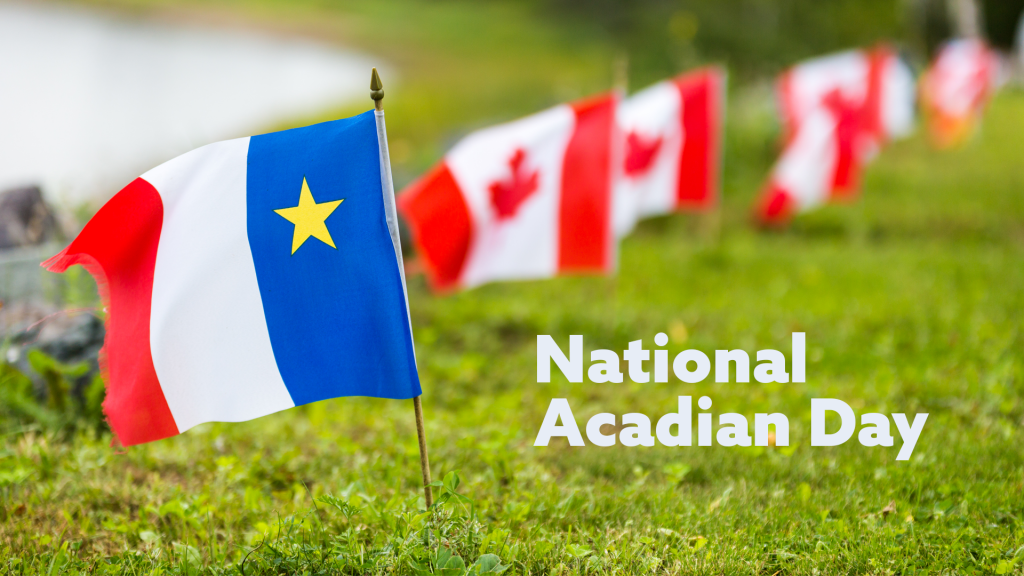
By Mireille Jaillet
Acadians, early 17th century French settlers who founded Acadia (now known as Nova-Scotia, New Brunswick and Prince Edward Island), are often known as the “Neutral French” due to their refusal to take sides during the French-English conflicts. The Acadian people were generally known as being friendly to everyone and sought allyship with all rather than allegiance to one.
Once Acadia was ceded to Britain, the Acadians became the subjects of the “Great Upheaval.” They were removed from their homes and deported to Britain as well as various French settlements and British colonies. Some who settled in Louisiana formed their own distinct cultural identity as Cajuns after adapting to their new environment. Of the ten thousand expulsed Acadians, approximately half lost theirs lives.
Over time, some Acadians were allowed to return to Acadia after agreeing to the contentious oath of allegiance, but not to their original dwellings as those had been gifted to American Loyalists, especially New England planters. Most Acadians who returned had either escaped deportation by finding refuge in the forests or had been prisoners held in Beauséjour, Pigiguit, Port-Royal and Halifax and had finally been released.
The Acadians had close relationships and ties with both the French and Indigenous peoples. The very reason they refused to take the unconditional oath of allegiance in the first place. Upon their arrival to the new colony, the new French colonists were assisted by the Mi’kmaq with food and other resources and the two groups remained close. They shared the territory and resources and worked together efficiently and harmoniously. The Acadians traded tools and goods with the Mi’kmaq for fur, fish, and other resources.
The Acadians never made any effort to displace the Mi’kmaq. However, once Britain seized Acadia, the relationship between the two became strained due to the pressures placed upon both by the British. It did not, however, deter them from working together to resist the British rule and attempts at assimilation.
After the deportation, the Acadians and Mi’kmaq continued to work together to preserve their cultures, to promote reconciliation and to address the historical injustices of colonialism. Some Acadians and Mi’kmaq formed families with each other, creating what is known as the Acadian Métis. We can also see Indigenous practices, terms and values that were incorporated into the Acadian culture and language. Some examples of this in terms of language:
| French | Mi’kmaq | English |
| Matelot | Matlot | Sailor |
| Adieu | Atiyu/atiu | Bye |
| L’assiette | Lasiyet/lasiet | Plate |
| Ma poche | Mapos | |
| Noel | Nuwel | Christmas |
| SHARED VALUES | ||
| Democratic practices | Community well-being | Desire for peace |
| Importance of Oral Traditions | Importance of Music, Dance, and drums | Harnessing of natural medicines |
Mireille Jaillet is the UNE National Equity Representative for Women.